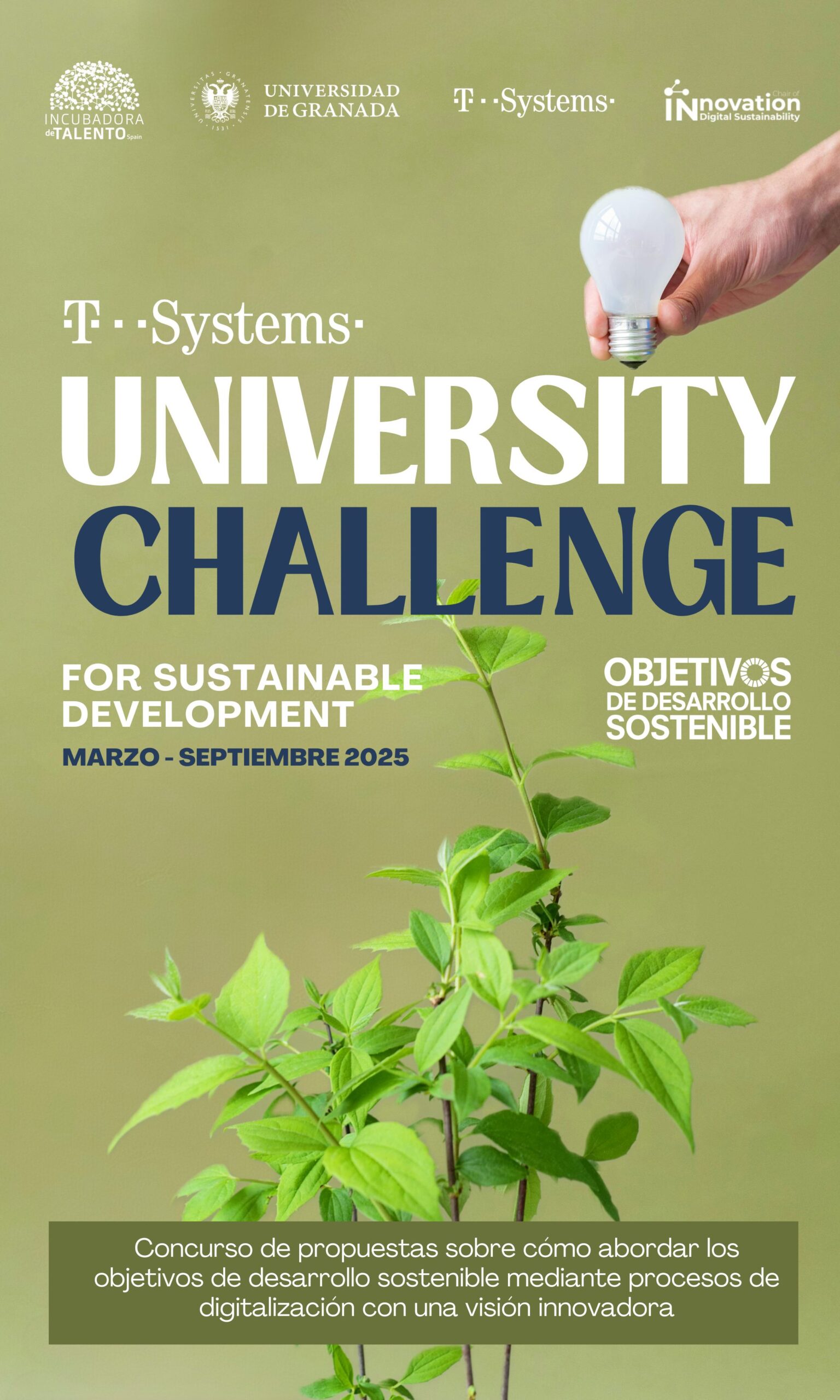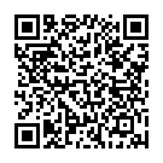T-SYSTEMS UNIVERSITY CHALLENGE
THE CHALLENGE. Program objective
The world needs improvements in multiple fields. The UN summarized these improvements in the Sustainable Development Goals (SDGs), and advances in digitalization can be a powerful tool to move towards their achievement. The T-Systems Chair – University of Granada in Innovation for Sustainable Digitalization invites any university student to develop, either individually or in teams, an innovative proposal based on digitalization that can effectively advance one or more of the SDGs. Proposals are sought that are related to the students’ academic fields and their future professional challenges in the most relevant economic sectors within the European Union, including: automotive, industrial manufacturing, public administration, healthcare, transport, financial services, commerce, tourism, logistics, and energy, among others.
Features valued in the proposal:
- Precision and rigor: Proposals must be as concrete as possible, backed by technical arguments and specific data from reliable sources.
- Originality and innovation: We are looking for approaches that bring substantial innovation capable of helping to achieve the desired objectives. It is important to describe how and in what way the proposal is innovative.
- Expected impact: It is important to define, quantify, and evaluate the advantages the proposal could bring.
- Personal involvement: Content in different sections of the proposal that reflects the personal involvement of those proposing it.

Some examples
- Related Personal Experiences: For example, personal life experiences could be described that have inspired the selection of the project, explaining why the project is personally interesting.
- Direct Contacts Made for the Development of the Proposal: For example, specific information could be included about the people interviewed for the development of the proposal and, ideally, annex photographs or video excerpts from the meetings between the students and those individuals.
- Professional Expectations: For example, by precisely identifying how the expected future professional path is linked to the project being presented.
- Application Context in the Closest Environment: For example, explaining how the proposal would affect an area of their own personal environment (neighborhood, city, association, etc.), describing the specific challenges of implementing the proposal in that context and how they could be overcome.
Benefits and Prizes for Participating University Students
Structure of the proposal
A. Lenght
B. Structure of the Proposal to Submit
- Cover page: Including the name(s) of the person/people proposing the project and contact details (email and phone), descriptive title of the project, relevant SDG(s), faculty, degree program, and professor (if applicable).
- Development Pages: Including:
-
- Proposal Description: Technical explanation of the proposal, including a description of the digital elements it would incorporate and their feasibility.
- Expected Impact: Description of the potential impact of the proposal in the context of the SDGs.
- Personal Involvement and Innovation: Explanation of the student’s personal motivation. Attachments: The inclusion of elements (e.g., files or shared directories) with a link in the project that help understand the project and why it can be considered innovative is valued.
Phases of the Challenge Program
PHASE 1. Project Development
- Announcement of the project.
- Development of the project by the students.
- Reception of proposals.
PHASE 2. Selection of Finalist Projects
- Evaluation of the submitted projects.
- Selection of finalist projects.
- Sending invitations to participate in the final phase.
- Opportunity for finalist projects to strengthen their proposals.
PHASE 3. Presentation of Finalists and Awards
- Development of the project presentation gala.
- Deliberation by expert professionals.
- Award presentation and dissemination of winning projects..
Additional Information and Professional Opportunities
The T-Systems Chair – University of Granada in Innovation for Sustainable Digitalization carries out its activities within the Talent Incubator at the University of Granada. If you have any questions about this program, you can contact us at incubadoradetalento@ugr.es.
Additionally, the Talent Incubator organizes multiple free programs aimed at facilitating the integration and professional growth of university students in collaboration with leading companies in their sector.

